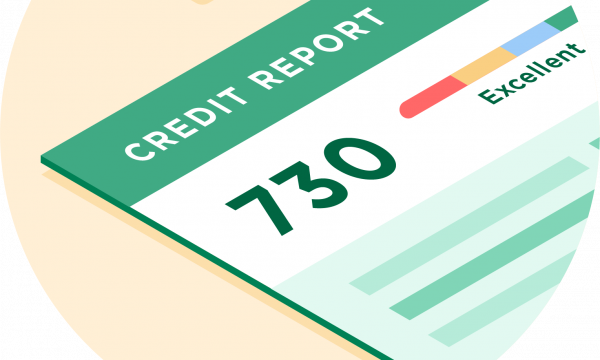Who Can Access Your Credit Report or Score?
It's not just potential lenders that can check you out. Insurers and employers also may access your report or score.

Many, or all, of the products featured on this page are from our advertising partners who compensate us when you take certain actions on our website or click to take an action on their website. However, this does not influence our evaluations. Our opinions are our own. Here is a list of our partners and here's how we make money.
Did you know...
Your credit reports and scores are private, but certain companies can review them for specific reasons — like when you apply for a loan, rent an apartment, sign up for utilities or buy insurance. Employers may also run a credit check for some jobs. Under the Fair Credit Reporting Act (FCRA), this is called “permissible purpose.” Friends, family, and businesses that don’t offer credit can’t access your information. With so much personal information available online, it might seem like anyone could look up your credit history.
The good news is that your credit scores and reports are private. Only certain companies and organizations can see them — and only for specific reasons — like when you apply for a loan or credit card, a job or set up utilities.
Unless you’re posting pictures of your credit reports on social media, your credit information shouldn’t be available to the public. It won’t show up as a search engine result, and your loved ones can’t request it, regardless of your relationship.
Stress less. Track more.
See the full picture: savings, debt, investments and more. Smarter money moves start in our app.
Who can access your credit report or score?
As a general rule, assume that if a company has a legitimate business reason, it will be able to check your credit. Here are some of the most common examples:
Banks
When you open a bank account, the bank may check your credit to see how responsible you are with money — even if you don't have a credit card attached to the account.
Banks do this because they are assessing their risk: the lower your credit score, the riskier you appear to lenders who assume you will be more likely to overdraw or leave accounts unpaid. Your credit may also be pulled if you opt for overdraft protection because it’s considered a line of credit.
Creditors
Current and potential lenders — like credit card companies, auto lenders and mortgage providers — may check your credit reports and scores to decide if they should lend to you.
Your credit history determines two things: whether you qualify for a loan or credit card and what terms you'll get. In general, the stronger your credit, the more likely you are to get approved for a loan with a favorable interest rate.
Student loan providers
In some cases, your credit history may be considered for student loans:
- When you apply for a federal paren PLUS loan, the government checks if you have an adverse credit history.
- If you have a federal student loan in default, you won’t be able to obtain another federal student loan unless a payment plan for the defaulted loan has been arranged.
- When you apply for private student loans — those not issued by the federal government — your credit may be pulled.
Utility companies
When you set up utilities or cell phone service, the company may check your credit reports. Many states have laws that keep utility companies from denying you service due to bad credit, but you could be required to pay a deposit if you have bad credit.
Insurance companies
Your credit may be pulled to determine your insurance rates because, statistically, those with poor credit are more likely to file claims. The insurance company will obtain your credit-based insurance scores, unless the use of such scores is prohibited in your state.
Landlords or property management companies
Potential landlords may check your credit to see if you have a history of paying bills on time. Landlords often assume that people with stronger credit scores are more likely to consistently pay their rent. If your credit doesn't fall in the good or excellent ranges, you may still be able to rent an apartment — especially if you use some of the strategies available for renters without credit.
Employers
It’s a myth that your current or potential employer can access your credit score. However, depending on your state, an employer may be able to review a version of your credit report.
This report doesn't include sensitive details like your account numbers or date of birth, but it does show other credit-related information.
Employers can't pull your credit reports without your permission. And if you’re denied a job based on what's in your credit reports, the law requires that you get a copy of the report along with an "adverse action notice" explaining why you were turned down.
Collection agencies
Collectors may peruse your credit reports for contact information or data about your account activity. This assists the agency in contacting you and assessing whether you’ll be able to pay your balance.
Government agencies
A government agency can check your credit if they have a valid reason. For example, they might use it to find your contact information, verify income or assets when you apply for public assistance or decide how much child support you can afford.
Any entity with a court order
There is an exception to the rule that a company needs a business reason to check your credit: a court order. If a judge authorizes it, your credit reports can be released. However, court orders are hard to get, so it’s very unlikely that your report will be shared without a strong reason.
Stress less. Track more.
See the full picture: savings, debt, investments and more. Smarter money moves start in our app.
How to get your credit reports and scores
Your credit reports and credit scores are separate. In fact, your credit score doesn’t appear in your credit reports at all. To see both, you’ll need to take a few extra steps:
To get your credit reports:
You are entitled to a free copy of your credit report weekly from each of the three major credit reporting agencies by using AnnualCreditReport.com.
You should review your credit reports regularly to make sure there are no errors. Material errors can hurt your credit score, lowering the chances that you’ll get approved for a loan and potentially costing you extra money due to higher interest rates.
Request your credit reports in Spanish
You can request your credit report in Spanish directly from each of the three major credit bureaus:
- TransUnion: Call 800-916-8800.
- Equifax: Visit the link or call 888-378-4329.
- Experian: Click on the link or call 888-397-3742.
Usted puede solicitar una copia de su informe crediticio (gratis y en español) de cada una de las tres principales agencias de crédito:
- TransUnion: Llame al 800-916-8800.
- Equifax: Visite el enlace o llame al 888-378-4329.
- Experian: Haga clic en el enlace o llame al 888-397-3742.
To get your credit score:
- Personal finance websites: Many offer free credit scores, and some — like NerdWallet — also provide free credit report information.
- Banking apps: Many banks include free credit scores in their apps. Turn on alerts to track changes and review updates to your score.
- Credit card companies: Some issuers share free credit scores, even if you’re not a customer.
If your bank app and a personal finance website show different credit scores, don’t panic. They may be using different scoring models (FICO vs. VantageScore) or pulling data from different credit bureaus, which can cause variations. Scores also change frequently, so small shifts are normal. Watch out for large, unexpected drops, though — those could point to fraud or identity theft.
Article sources
NerdWallet writers are subject matter authorities who use primary,
trustworthy sources to inform their work, including peer-reviewed
studies, government websites, academic research and interviews with
industry experts. All content is fact-checked for accuracy, timeliness
and relevance. You can learn more about NerdWallet's high
standards for journalism by reading our
editorial guidelines.
Related articles









